Derek McInnes: Investing in players key to Aberdeen manager
- Published
Interview: Aberdeen manager Derek McInnes
League Cup semi-final: Dundee United v Aberdeen |
|---|
Venue: Hampden Park Date: Saturday, 31 January Kick-off: 15:00 |
Coverage: Live on BBC Radio Scotland & online. TV highlights: BBC One Scotland 22:30 |
The inside track has it that Aberdeen manager Derek McInnes is a master at fending off difficult questions.
The word is he can see them coming, that he's too intelligent to get drawn into territory he does not want to be in, that he manoeuvres his way out of tricky terrain with ease.
When he sits down, there is only one way to deal with this and that is to try to put on a straight face while extending to him a once in a lifetime opportunity. "Aberdeen people say you give nothing away, here's your big chance..."
He smiles at the offer and explains where he is coming from. He certainly picks his words carefully.
He knows that his players will read them, his chairman will read them and maybe his next opponent in the managers' dug-out will read them too. That's Jackie McNamara. The League Cup semi-final between Aberdeen and Dundee United is on Saturday and here the only discomfort he is going to cause McNamara is total embarrassment at the lovely things he says about his team.
Game-breakers all over the pitch. Creativity. Excitement. Goals. You remind McInnes that his record against United as Aberdeen manager reads played six, won four, drawn one and lost one and he chooses to focus on the loss, a 3-0 drubbing on the first day of the league season.
"Shows what they're capable of. I have nothing but respect for the job Jackie's done there," he says.
That's the game within the game. Don't give a rival free motivation.
"I mean it, though," adds McInnes. "They're excellent. Listen, I've always found less is more when you talk to the press sometimes. One or two managers I worked under were too quick to make rash calls and get carried away and one or two others were very clever about it. I'm a bit guarded, aye."
These are heady days for Aberdeen. Maybe the fire they lit under Celtic's backside is beginning to flicker after two draws in their last two league games, but the big picture is one of a club moving forward.
Seven victories in a row for the first time in over 20 years. Ten games unbeaten in the Premiership. More points than at this time last season. More victories, more goals, more feel-good. Better infrastructure. A trophy. And maybe - maybe - another trophy.
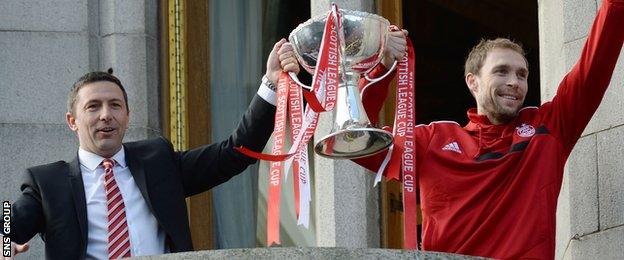
Aberdeen brought the League Cup home last season - their first trophy since 1995
It would be stretching it to say that Allan McGraw, his old boss at Morton, is the template for his style of management, but there's no doubting McGraw's influence.
"Because of his knees, Allan couldn't do the physical work on the training pitch, so a huge part of his management was his contact with the players," explains McInnes. "The first couple of times it was a wee bit strange. I'm a 16-year-old boy sitting with the manager. Cup of tea, long chat. Little bit awkward at times.
"As soon as a young player is in the manager's office, he just wants to get out of it. It's still like that. When I look back, what he did was so important. He would dissect your game. Even if you had a poor game, he had this knack of making you feel better about yourself. I might have had a proper stinker, but he would always find some positives and, because I knew he believed in me, I became 10 times the player I might have been.
"You have to make your players feel important. Invest in them and they'll invest in you, they'll give it back to you many times over. Professionals can be insecure and that's why it's so important that, when they go on the pitch, you've given them every chance to be the player they can be.
"I always felt that I needed to be the fittest player on the pitch, I needed to know exactly what my job was and I took confidence from that. I didn't want any surprises. There's nothing worse than being surprised, nothing worse than feeling the guy against you is fitter than you. When you're on a pitch, you're exposed. If the guy is better than you then you can't do anything about that, but if you know you're fitter and better prepared than him, that makes a hell of a difference."
He is not critical of previous Pittodrie regimes - far from it - but he wondered why good managers and good players didn't quite work out there.
"Good people go in the door and it doesn't happen for them," he says. "It's too easy to say that they underachieved. Why? Because they were training on bad pitches, the sports science wasn't there, the players were eating the same food as everybody else in the building, the scouting reports, match analysis could have been better, there were loads of things that could be done better and all we've done is up it.
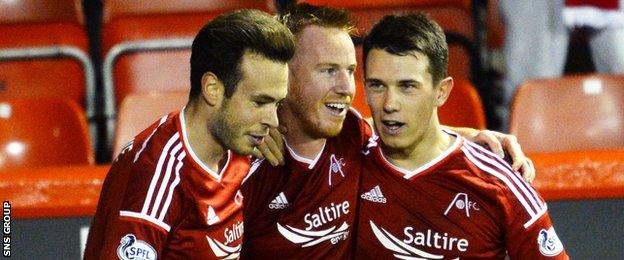
Aberdeen beat Hamilton to reach the last four in the League Cup
"I've got 11 'animals' on the pitch now. They know what their job is and they're ready to go to work. The results don't always come, but that's the way life is. "
McInnes balks at the suggestion that he's a control freak but admits he struggles to delegate sometimes. He's improving, though.
It helps that Tony Docherty is not just his assistant but a valued friend.
"Anybody who is the contact with the players has to be an extension of me," he continues. "I don't want to expose my players to bad staff. I can be quite intolerant, which is either a weakness or a strength, I don't know. I just want good practice. And Tony's brilliant. We're happy to work with limited players who give their all, but we don't want to work with lazy players who won't take responsibility."
Such a sea-change in McInnes's own career. You tell him that it's almost two years to the day since he was sacked by Bristol City and he's quick to correct you. "It's just past two years, a week or so ago," he replies. "I remember the date, it was just before my mother's birthday."
It's not that the date is carved into his consciousness, but the experience is still relevant, still a part of what drives him.
"It was a bit of a hopeless cause when we went in," he says. "They were adrift at the bottom of the league, hadn't won a home game all season, 40-odd pros in the dressing room and they were haemorrhaging money. I was well aware of what I was going into.
"I'd knocked back a couple of opportunities to go down south while I'd been at St Johnstone and I thought there's only so many times you can knock these things back. I assessed it. The club was in trouble, but there was a lot to like about it as well. We kept them up the first season.
"I had a good rap with the supporters, they were more than fair to me. They were exasperated with the whole situation. Year on year, the same problems existed. There was probably too many people within the club with too many opinions.
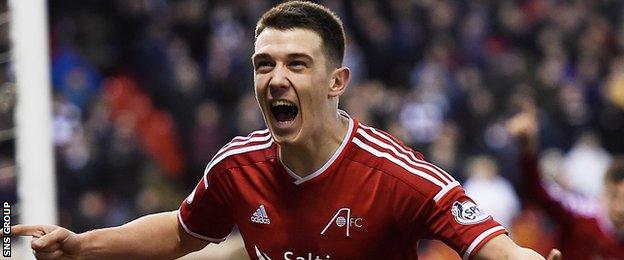
Derek McInnes is tipping midfielder Ryan Jack to have a 'brilliant career'
"Ah, it happened, you learn, you move on. There are certain things that I look back on and maybe I was fire-fighting too much, trying to do too many things and trying to appease the board rather than preparing my team Monday to Friday a little bit better."
He says that he's always wanted to prove people wrong. Not Bristol City people, particularly, but people along the way, He won't say who. "Even as manager of St Johnstone I had that," he adds.
"My motivation is that I know there are people who'd like to see us fall flat on our face. There's not a queue of these people. I'm not a paranoid manager, don't worry. It probably says more about me than about them."
Aberdeen's opponent on Saturday have suffered loss, of course. United helped rear some fine talents only to see them leave, the soothing balm being the pound notes the club was given in transfer fees. McInnes has had no such worries, most of his first team having already experienced English football. The allure for a lot of them. But not for all.
Ryan Jack, 22 years young, is the one they all talk about. Peter Pawlett, too, but Jack looks like a fiendishly good player in the making and, if rumours are to be believed, he has some big names in Serie A keeping an eye on him. McInnes is non-plussed.
"He was the first person I gave a contract to when I came in," he recalls. "Ryan's only going to get better and better. I think he's got more to his game than he's showing at the minute in terms of his attacking threat in the final third, but because I've got Hayes, McGinn, Goodwillie, Pawlett, Rooney, there's got to be some sort of restraint in his role.
"Ryan, at times, plays a wee bit with the handbrake on because of my instruction, but he's a top player and he's going to have a brilliant career."
When the conversation ends, McInnes gets up to leave. Then, he starts to laugh: "Listen, I think I might have sounded a bit intense there, a bit of a misery guts. We have fun, too, you know. I promise."
Don't doubt him for a second.
- Published28 January 2015
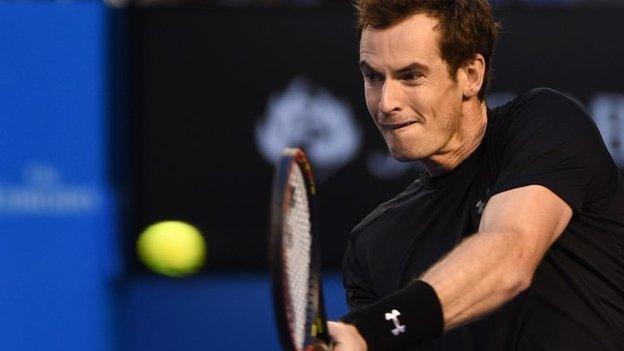
- Published27 January 2015
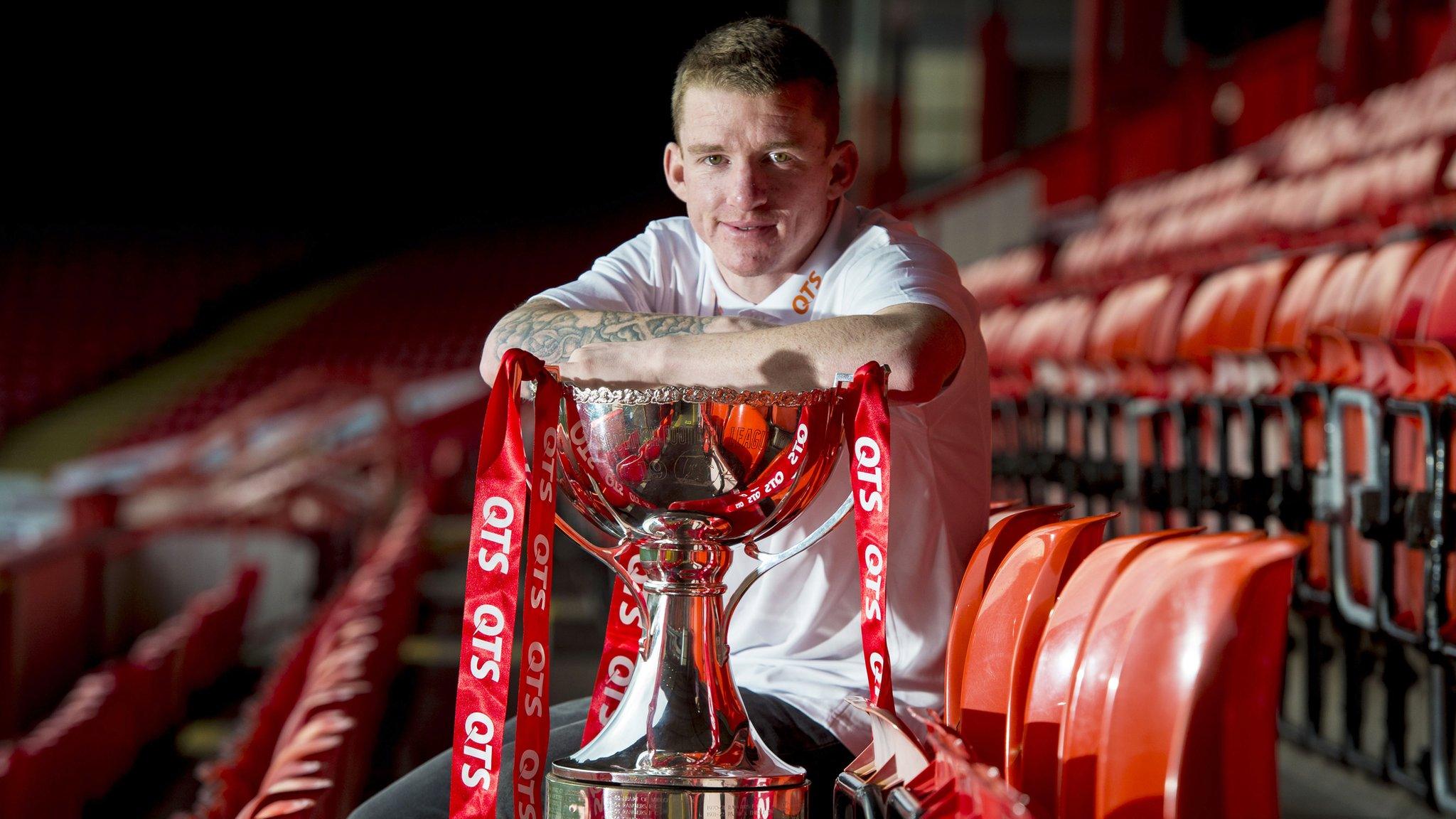
- Published27 January 2015
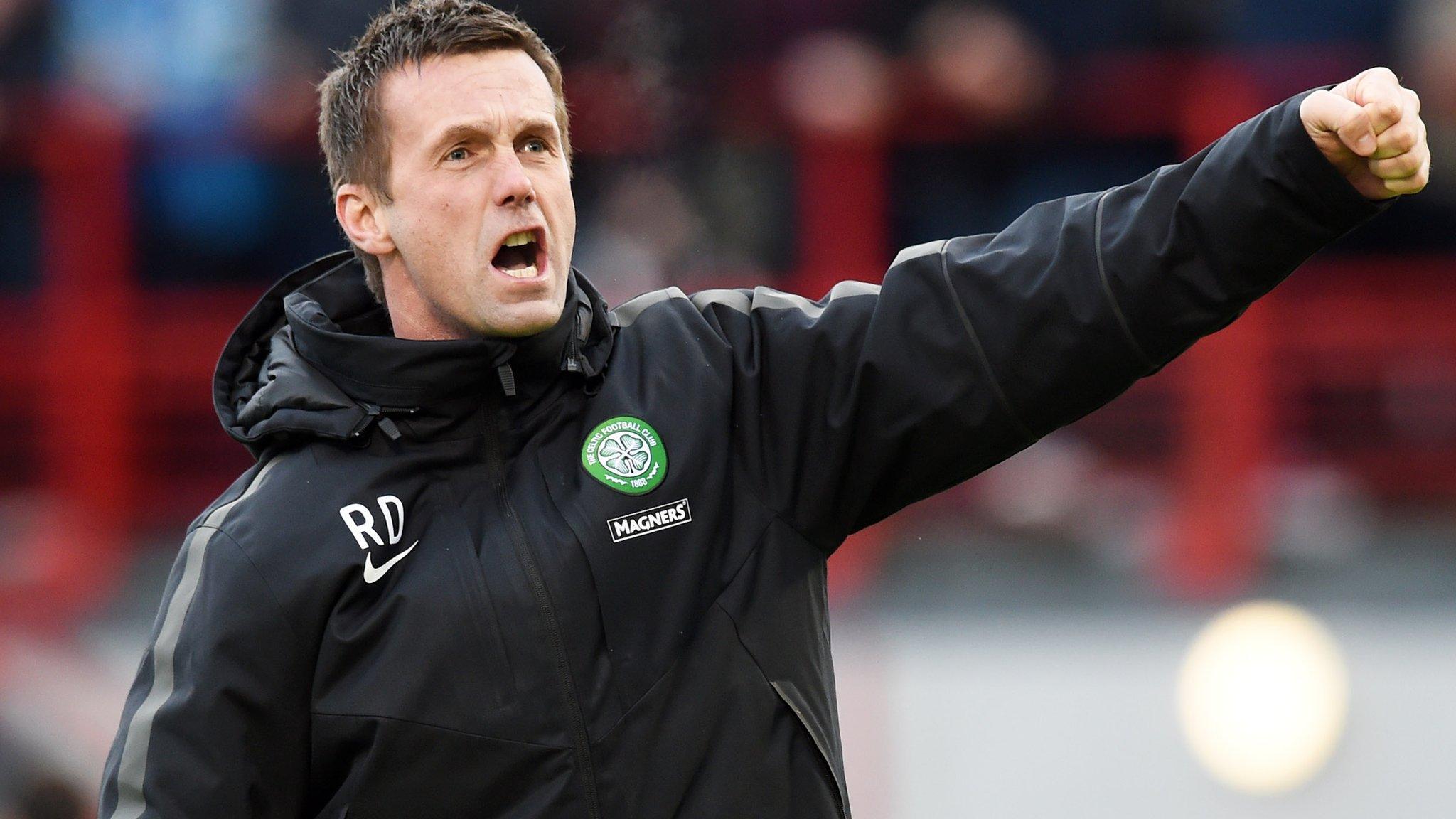
- Published20 June 2016

- Published7 June 2019
